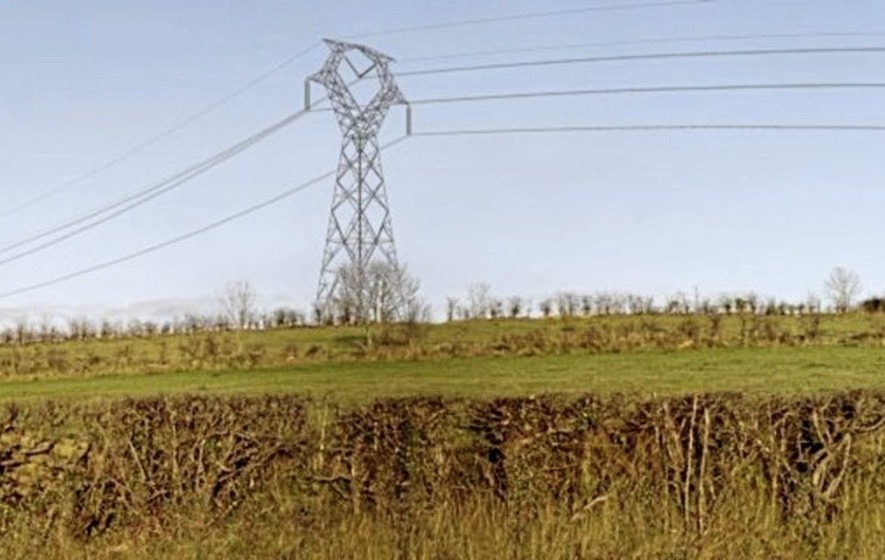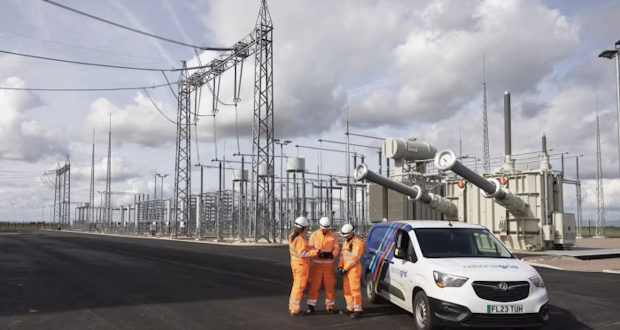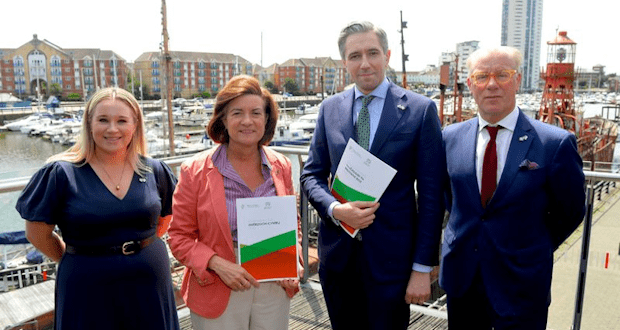Counsel for a group of landowners also claimed the decision to give the go-ahead for the North South Interconnector unlawfully violated Stormont’s Ministerial Code.
But government lawyers insisted new legislation meant Infrastructure Minister Minister Nichola Mallon had legal power to authorise the project without taking it to her Executive colleagues.
Members of Safe Electricity Armagh and Tyrone (SEAT) are seeking to judicially review her decision to grant planning permission.
In September last year approval was given for the 400kv overhead electricity line which is to stretch from Co Tyrone to Co Meath.
The scheme received the green light after previous consent given in the absence of a minister was quashed.
SEAT’s challenge to the fresh decision taken by Mrs Mallon centres on Northern Ireland’s constitutional arrangements and newly introduced legislation.
Passed last year, the Executive Committee (Functions) Act gives ministers more power to make autonomous decisions.
However, SEAT’s legal team argue that the proposed Interconnector is a significant or controversial, cross-cutting issue which should have still been referred to the Stormont Executive.
Barrister Ronan Lavery QC contended that Mrs Mallon remained under an obligation to act in accordance with the Ministerial Code.
Mr Justice Scoffield was also told that the provisions used to grant planning permission was secondary legislation.
Exempting the Minister from having to table such a controversial issue at the Executive breached the Good Friday and St Andrews Agreements which form the “cornerstone” of Northern Ireland’s framework for power-sharing, it was claimed.
Mr Lavery submitted that something as controversial as the electricity scheme should have been put before the Stormont cabinet.
Tony McGleenan QC, responding on behalf of the Stormont bodies, countered that the Ministerial Code is subordinate to the 2020 Act.
“There’s been a very deliberate legislative intervention to neutralise a difficulty,” he told the court.
“The applicant is seeking to reinterpret it back in again by way of a subordinate code.”
Asked if there is any intention to amend the Ministerial Code to reflect the new legislation, Mr McGleenan replied that a paper was drafted last autumn but never advanced.
As the case continued, SONI, the operator of Northern Ireland’s electricity transmission system, expressed its hope that an outcome will be reached without delay.
Spokesperson Natasha Sayee said outside court: “Planning permission was granted after an exhaustive planning process lasting more than a decade, this has included extensive consultation and two public inquiries.”
She also described the project as key to economic growth as Northern Ireland emerges from the pandemic, creating local construction jobs and helping to reduce the cost of electricity.
original article: https://www.irishnews.com/news/northernirelandnews/2021/06/02/news/north-south-interconnector-court-challenge-2341458/



